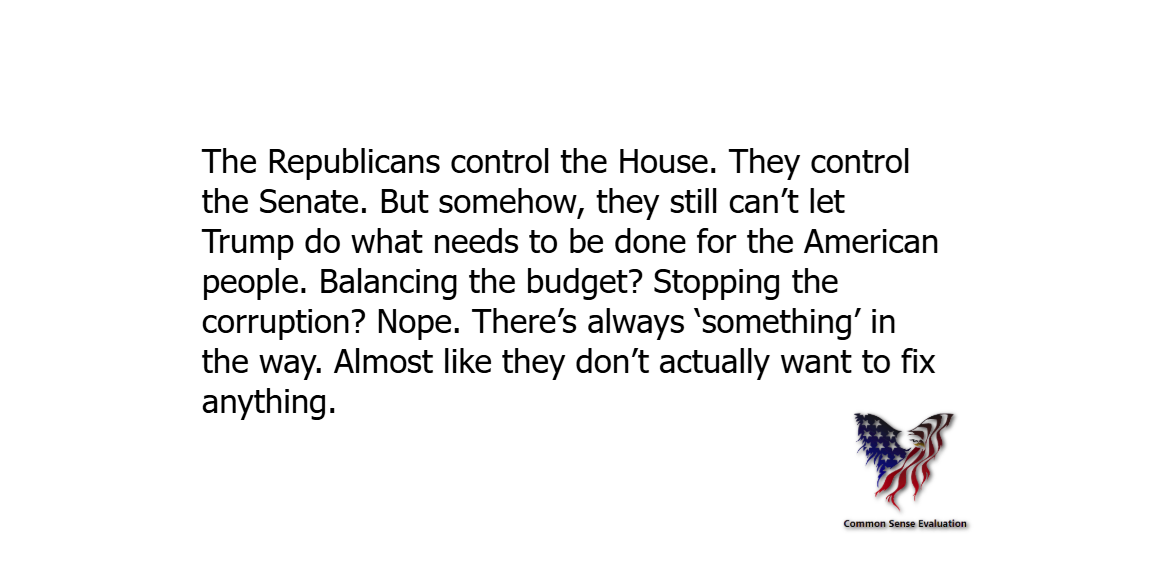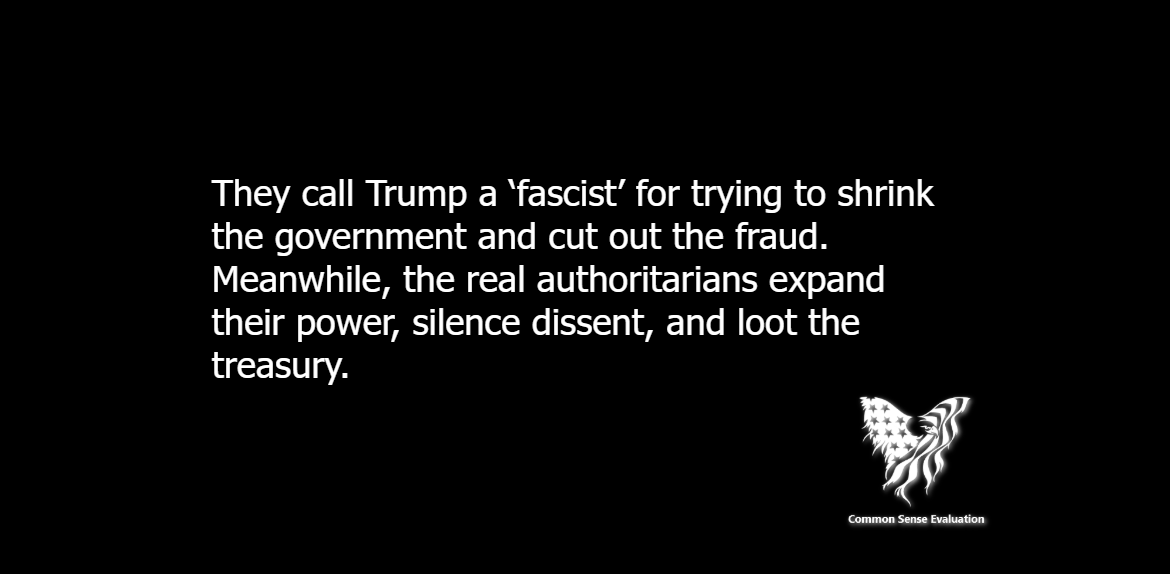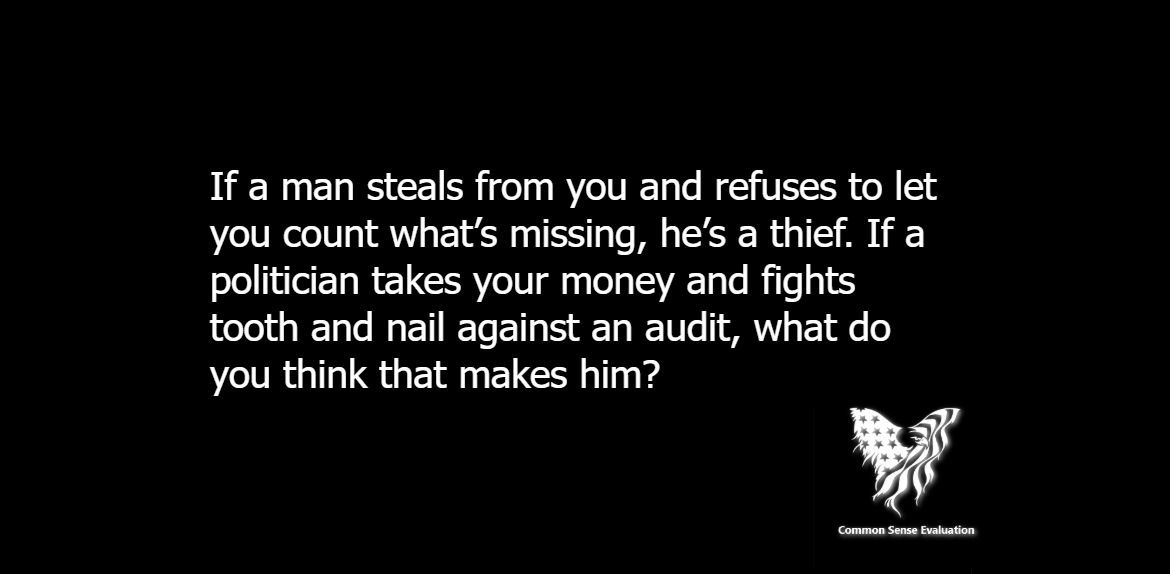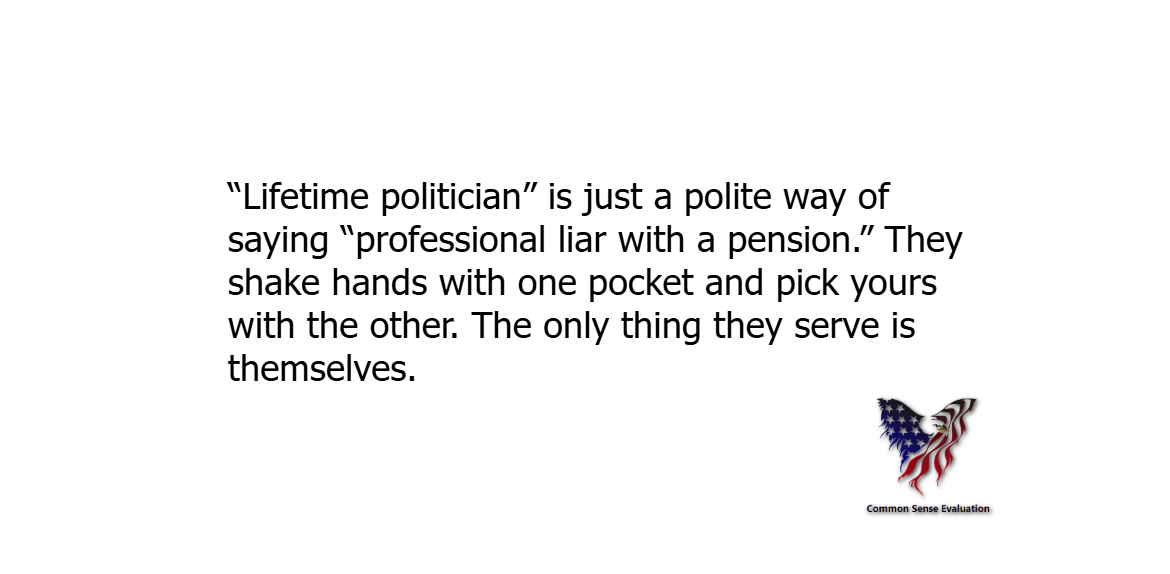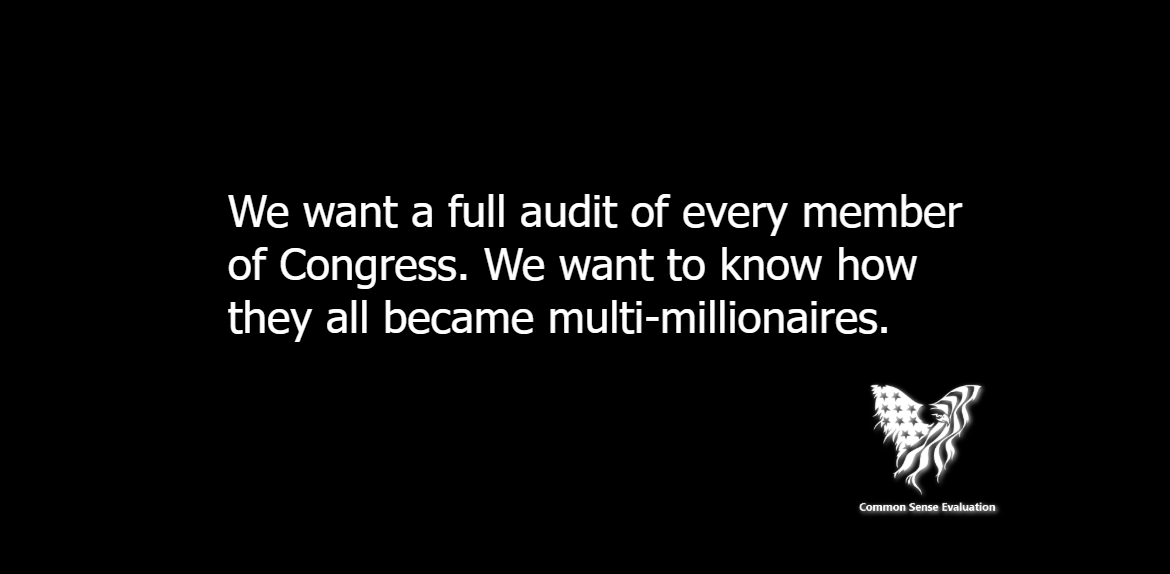The Republicans control the House. They control the Senate. But somehow, they still can’t let Trump do what needs to be done for the American people. Balancing the budget? Stopping the corruption? Nope. There’s always ‘something’ in the way. Almost like they don’t actually want to fix anything.
